During the last Pride in Performance Awards held in 2023, one business unit shone brightly with revenue of PHP 13 billion, EBITDA of PHP 6.6 billion, and EBIT of PHP 3.1 billion, all earned in FY2022. With those outstanding results, the Commercial Centers Division of Robinsons Land Corporation (RLC) clinched the Business Outperformance award, the most coveted honor of the the Gokongwei Group's internal recognition program.
For the next edition of the awards, the division is bound to be a strong contender for the top plum yet again. While audited financial figures for 2024 are not yet available, revenue in 2023 rose to PHP 16.21 billion — a 24% increase from the previous year. Leading this remarkable charge is Faraday Go, the Executive Vice President of RLC and the Business Unit General Manager of the Commercial Centers Division.
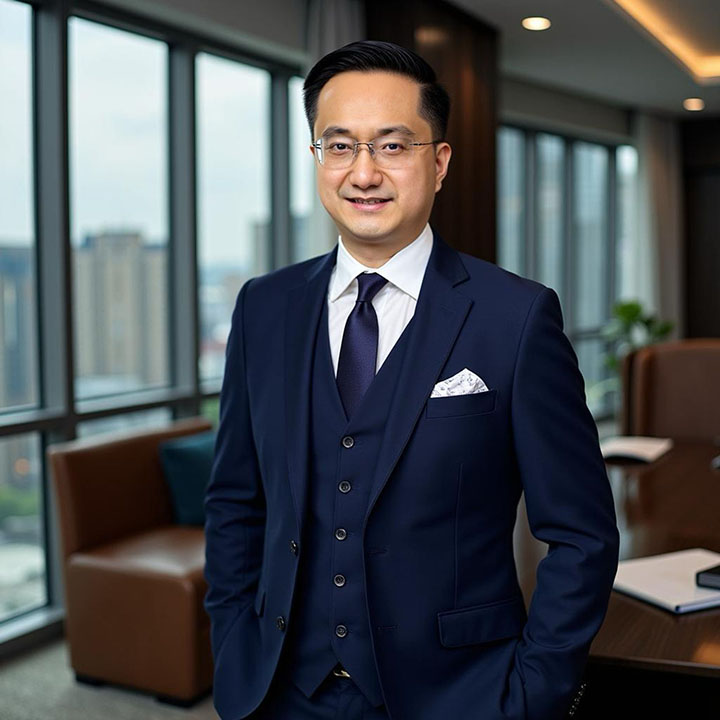
As the driving force behind Robinsons Malls, a chain of 55 lifestyle hubs across the country, Faraday’s vision and customer-focused strategies have cemented the division’s position as RLC’s top revenue contributor, accounting for 39% of the company’s revenues in 2023. More than a straight-forward story of business success, Robinsons Malls has redefined the role of malls in Filipino society, with these now serving as community hubs that blend retail, dining, entertainment, and essential services for its patrons nationwide.
From Salesman to Strategic Leader
Faraday’s journey to becoming among the visionaries in Philippine retail is a story of perseverance, adaptability, and a deep commitment to adding value—a principle he learned directly from his uncle James Go, the Chairman of JG Summit Holdings. “My uncle taught me to always find ways to contribute meaningfully to any organization that I’m part of. That’s what really drives me. I always tell myself, ‘I have to add value. I have to create value,’” Faraday reflects.
After his graduation from Ateneo de Manila University in 1998, Faraday entered the workforce at Apo Cement Corporation, which was then part of the Gokongwei Group. With a management degree in hand, he served as an assistant to the company president, his uncle "Mr. James", as he is best known in the conglomerate. Though this was the shortest stint in his CV—Apo Cement was sold to global cement giant CEMEX in 1999—Faraday describes his time there as foundational, offering deep insights into the manufacturing and industrial sectors.
My uncle Mr. James taught me to always find ways to contribute meaningfully to any organization that I’m part of. That’s what really drives me. I always tell myself, ‘I have to add value. I have to create value.’
His next move was to another family-owned company, at JG Summit Petrochemicals Corporation, known today as JG Summit Olefins. There he took on the role of an assistant marketing professional, selling polypropylene and polyethylene pellets directly to manufacturers of plastic goods. Describing those times as both challenging yet rewarding, Faraday recounts how he would drive himself around Quezon City and the CAMANAVA (Caloocan, Malabon, Navotas, Valenzuela) area with pages from a map book taped together as his only guide. “Remember, there was no Google Maps or Waze at the time!” laughs Faraday. “I’d go around and knock on factory doors, hoping to talk to the owners directly. The plastic factories at the time and I guess until now are usually run by the owners themselves. Sometimes I’d be able to get through to them, but there were also times I’d also have dogs barking at me!”
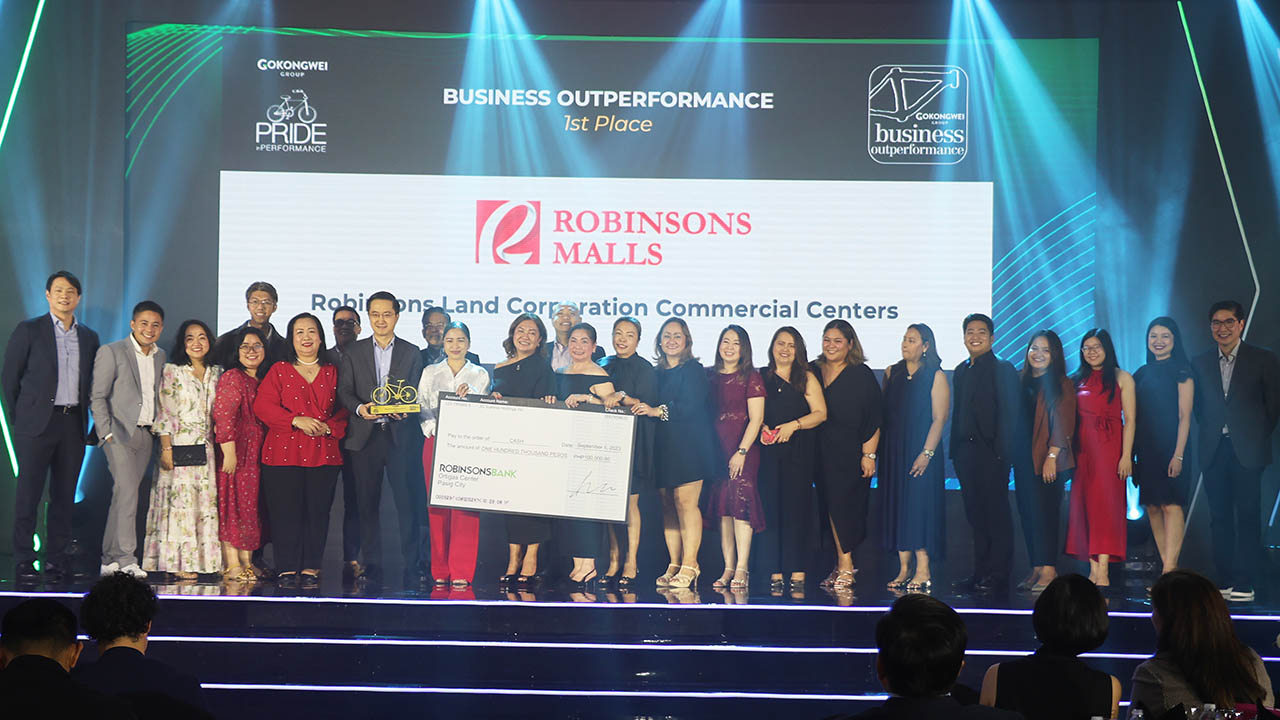
One particularly memorable experience during his typical rounds involved braving a flood in Navotas, only to have his car fall into an open manhole. “I had to ask passing truck drivers to help lift the car out,” says Faraday. Always seeing the bright side, he says these difficult moments were crucial to his growth: “Those days remind me of the importance of hard work, perseverance, and grit.”
Faraday’s work ethic and determination paid off. By the time he left JG Summit Petrochemicals, he had grown his client portfolio significantly—just one example of him adding value. Starting from scratch to recording sales of around 800 tons of polypropylene and polyethylene resins a month, this laid the groundwork for his next role at Digitel Mobile Philippines (DMPI), the parent company of Sun Cellular, where he spent the next 12 years developing his leadership skills.
There are three elements of success. One is hard work. Two is the desire and willingness to learn. Three is integrity. That's non-negotiable.
As a Vice President for Corporate Sales and Retail Management at Digitel Mobile, Faraday managed over 1,200 employees and around a hundred-plus Sun Shops. Working in the telecommunications sector was both exhilarating and demanding. With Sun being the challenger brand against industry giants like Globe and Smart, innovation was non-negotiable. It was during his time at Sun where he internalized the key elements of success. “My boss told me that there are three elements of success. One is hard work. There's no shortcut to success, but hard work. Two is the desire and willingness to learn. It's a continuous learning process, so we always have to have that desire and willingness to learn. Three is integrity. That's non-negotiable. These three things I always remember and share with people whenever I have the chance.”
Transforming Robinsons Land’s Business Units
After spending two years at PLDT following its acquisition of Digitel in the early 2010s, Faraday’s return to the Gokongwei Group came via Robinsons Land in 2014, marking a turning point in his career. Appointed as General Manager of the Office Buildings Division (OBD), he had to quickly learn the ins and outs of the industry quickly.
Fortunately, he has his older brother Frederick (then president and CEO of RLC) to run to for advice. “He told me that it was important to personally meet the architects, the contractors, such as the suppliers of the air-conditioners, the elevators. Meet them so that you understand if there are problems at your properties. I learned a lot from that,” says Faraday. “I'm not an engineer but later on I felt like I understood how technical stuff works!”
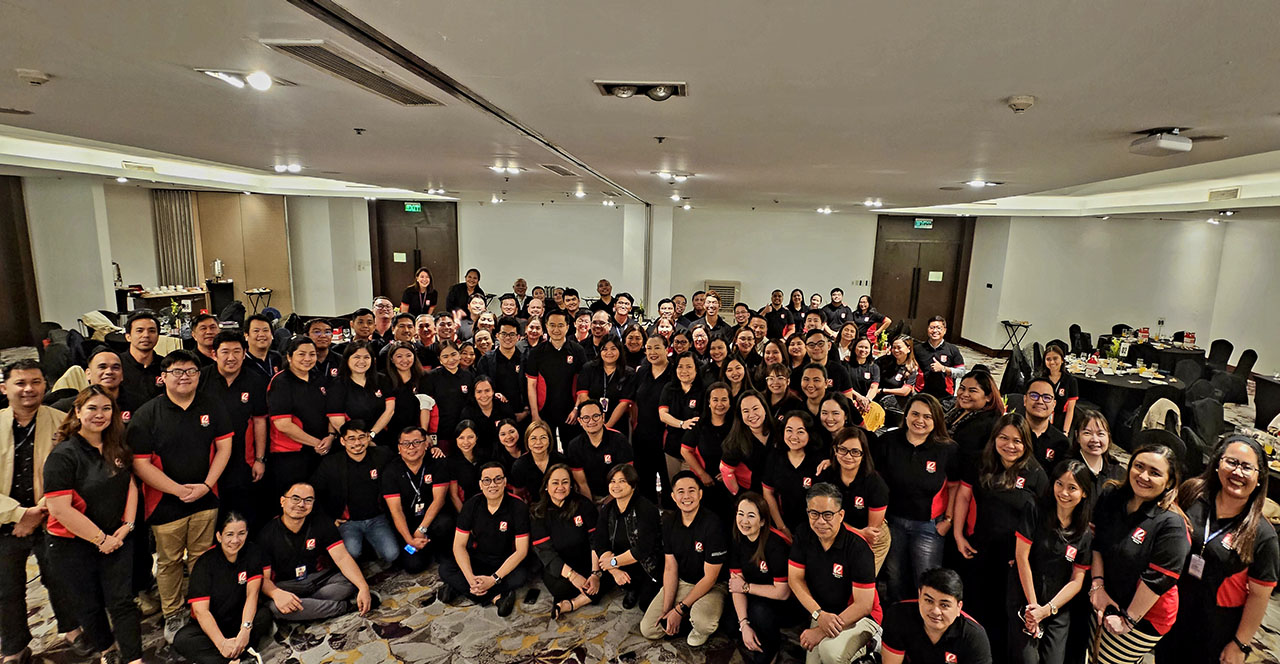
Thanks to this, Faraday was able to make informed decisions on technical aspects like waterproofing, air-conditioning and electrical designs, elevator capacity requirements, and even window glazing specification. Under his leadership, the division grew its contribution to RLC’s revenues from PHP1.44 billion (9%) in 2013 to PHP 5.3 billion (17%) by 2019.
That year, Faraday was promoted to Executive Vice President. In addition to his role in OBD, he was tasked to oversee the Commercial Centers Division, the largest business unit of RLC, in tandem with its general manager at that time, Arlene Magtibay. The timing was challenging—the COVID-19 pandemic struck less than a year into his tenure. It was a big test for everyone, and at Robinsons Malls, they had to rethink what malls could and should be. Despite the initial hurdles, the best was yet to come.
Customer-Centricity and Innovation
Faraday’s approach to leadership is deeply rooted in customer-centricity. “That’s the key or the center of our strategy: being able to provide our customers a good experience at our malls. Enhancing the customer experience isn’t just about service, which most people equate it with. It’s about the entire journey—from the moment you enter the mall, find a good parking slot, to the temperature of the air-conditioning, having clean restrooms, the background music that you have. Now we're even working on the scent,” he says. “The escalators have to be working, the lighting has to be bright. It’s the whole package.”
The customer-first philosophy is also evident in one of Robinsons Malls’ most popular initiatives, the Lingkod Pinoy Centers. These house essential government services like passport and drivers’ license renewals, SSS and Pag-Ibig transactions and more, which have transformed the malls into one-stop shops for convenience and community engagement.
Faraday’s approach is deeply rooted in customer-centricity. ‘That’s the key or the center of our strategy: being able to provide our customers with a good experience at our malls. Enhancing the customer experience isn’t just about service – It’s about the entire journey.’
The tenant mix, Faraday believes, is another critical driver of a mall’s success. “Why do people go to a particular mall? Maybe it’s because your favorite restaurant is there. You don’t go to a mall just to eat at any restaurant; you have your preferred ones, but you also like variety. Gusto mo, iba-iba yung cuisine. Gusto mo Japanese, Gusto mo Greek, Gusto mo Korean, Gusto mo Filipino. The mix [in the mall] is so important.”
While F&B options are important, it’s not the only factor shoppers consider. By carefully curating a balance of dining, retail, leisure and entertainment options, Robinsons Malls consistently attracts and builds a loyal base of customers.
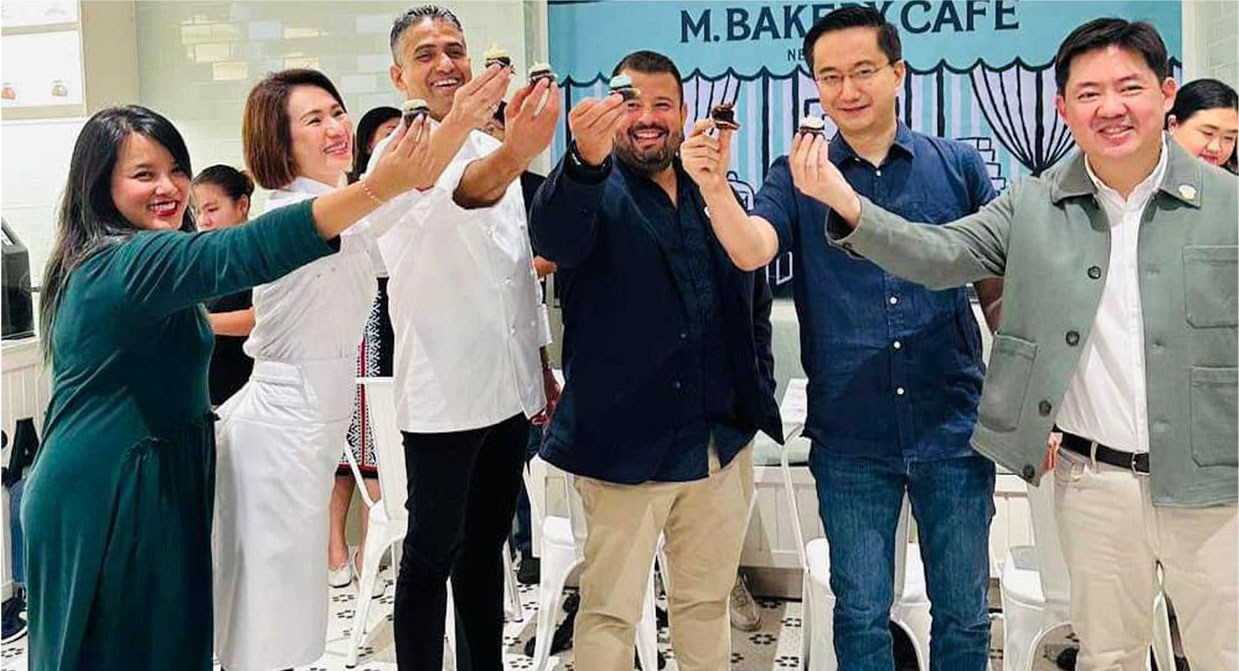
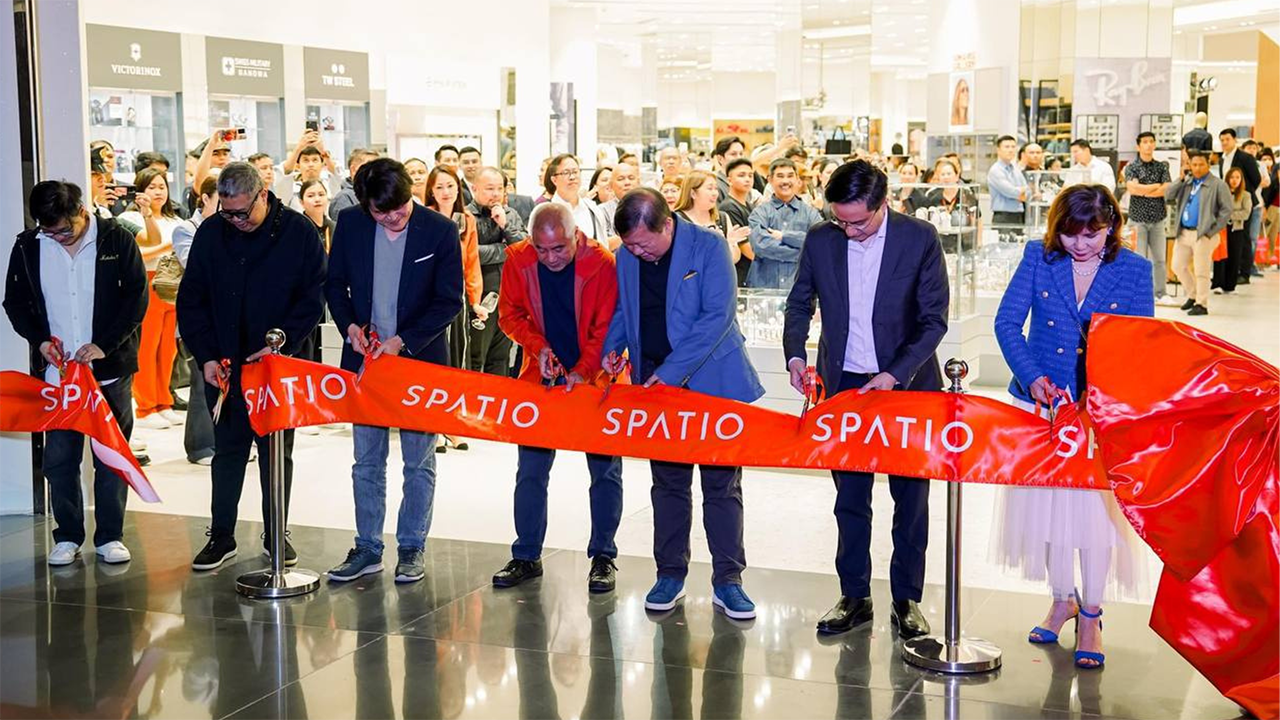
Of course, Faraday had to ensure that tenants needs are met as well. To foster strong relationships with them, he ensures that he makes time to meet regularly with them, learning about their concerns over a casual lunch, coffee, or dinner. “I like to get to know and meet them,” says Faraday. “Spending time with them and being accessible is very important.”
Cultivating close relationships has its perks too. Sometimes at his meetings with existing or potential tenants, they might mention plans or concepts for a new store or restaurant. “When I hear that, I’ll always ask if we can be the first to have it in our malls,” reveals Faraday with a smile. And sometimes, the answer is a resounding yes!
We are all about our experiential offerings. Dining experiences, for example, because you can't replicate that online. There's also what you call experiential retail, which is about personalization or customization.
Robinsons Magnolia, for example, was the first mall to have a branch of Breakfast at Antonio’s by the highly regarded chef Tonyboy Escalante. It also became the first mall location of the Konbini Store, where shoppers can now buy some of their favorite Japanese goods.
In terms of innovations, one of Faraday’s standout projects is the introduction of the newly launched Family Cinema at Opus Mall. Inspired by similar concepts that he saw and experienced abroad, this kid-friendly space features bean bags, couches, and brighter ambient lighting to create a welcoming atmosphere for families. “Kids can be kids here,” assures Faraday. “In a normal cinema, sometimes when you're watching and then there’s a child who asks, ‘Mommy, what’s happening?’, some people would go SSSSHHHHHH!, right? At our Family Cinema, kids can ask questions. We make the lighting a bit brighter so the kids don't feel like it's dark and scary. Then the sound, we’ve made it slightly lower so that people don't feel it's too loud.” The concept has been a hit, reflecting Faraday’s knack for combining global inspirations with localized needs.
Faraday is also steering Robinsons Malls toward premiumization. Opus Mall, The Mall-NUSTAR in Cebu, and Robinsons Magnolia are prime examples of this shift, catering to affluent and aspirational consumers with high-end retail and dining options. As the Philippine economy grows, so does the demand for world-class experiences.
Sustainability and Technology: The Future of Malls
Under Faraday’s watch, Robinsons Malls has made significant strides in sustainability, proof of which was being named the 2023 Asia CEO Awards Sustainability Company of the Year. So far, 24 Robinsons Malls have installed rooftop solar panels that provide a significant amount of clean and green power. With a recently inked partnership with Meralco, Robinsons Malls can expect a greater proportion of its energy needs coming from renewable energy.
Modern technology plays a pivotal role in enhancing the mall experience. From rolling out EV charging stations and chatbots for customer concerns, to providing digital billing systems for tenants, Robinsons Malls is leveraging innovation to stay ahead. Integrating technology into every facet of its operations, it is making the customer journey seamless and enjoyable.
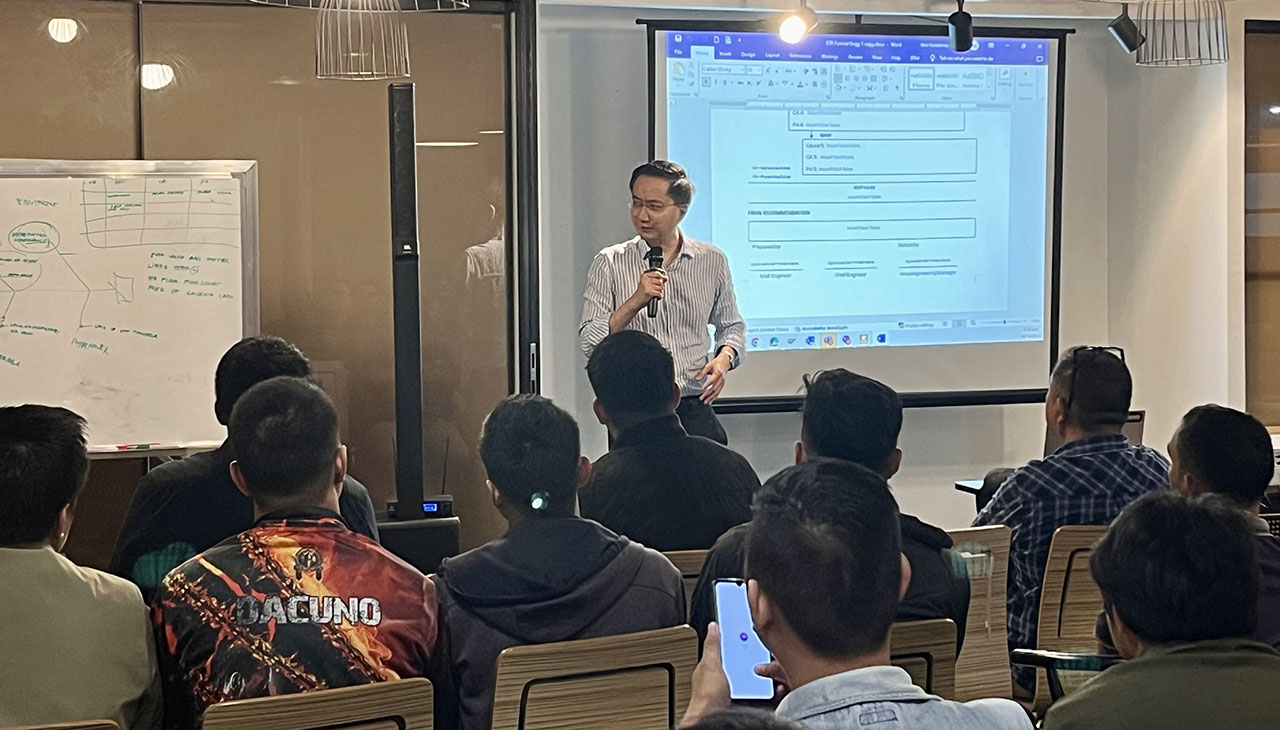
Even as e-commerce grows, Faraday sees malls, in the Philippine context at least, as irreplaceable “experiential” spaces. “We are all about our experiential offerings. Dining experiences, for example, because you can't replicate that online. There's also what you call experiential retail, which is about personalization or customization. There's one brand at our malls that customizes the jackets that you buy with nice badges. There's also shoes. You need to experience it, to feel it, when you buy, right?”
The vision to enhance customer experiences extends to the creation or upgrading of amenities, such as co-working spaces, gardens, and playgrounds that offer more reasons for people to visit.
Leadership Philosophy: Adding Value and Empowering Teams
Faraday describes his leadership style as a balance between hands-on involvement and empowerment. “I’m generally quite detailed,” he says, before adding that he’s capable of seeing the big picture when necessary. With new initiatives, he likes being hands-on. “For the Family Cinema, for example, when we decided to pursue it, we did our research. We saw how it was executed in different countries, and we put the best of those elements together to make an even better product.” Another project he was thoroughly engrossed with was work.able, the co-working spaces found at several Robinsons Offices buildings. “When we launched that in 2017, I was very particular about the execution. For the seats, the samples were delivered to our conference room. And we sat on each and every one before we picked the seats and chose the colors. The lighting, the coffee and the coffee mug, we approved all of that.”
The malls today are nowhere near being mere places to shop. They really are a place for the community, a social space, where people can do so many other things that they love and enjoy.
On the other hand, he also trusts his team to take the lead, believing that trust is key to long-term success. “There’s the side of me where I empower my people. When I think that someone is capable, consistently diligent and reliable, I empower them.”
A Vision for the Future
Asked about his outlook for the industry, Faraday is highly optimistic and envisions Robinsons Malls continuing to evolve as community-centric spaces. “The malls today are nowhere near being mere places to shop. They really are a place for the community, a social space, where people can do so many other things that they love and enjoy.”
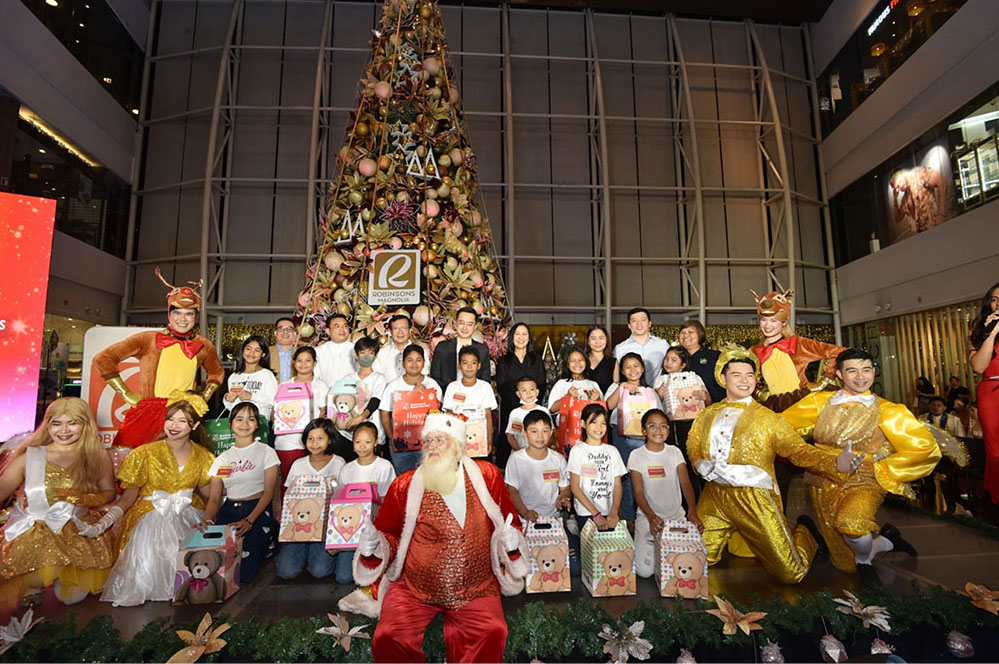
Faraday’s favorite Gokongwei Group core values—Integrity and Entrepreneurial Mindset—shine through in his work. Integrity, as he mentioned earlier, is a must, “it’s non-negotiable”, while having an Entrepreneurial Mindset keeps him on his toes, always innovative and agile.
These principles, combined with his resilience and vision, as well as his goal to always add value, have transformed Robinsons Malls into what they are today, an integral part of Filipino culture and lifestyle, making life better for all. — Pierre A. Calasanz
To learn more about Robinsons Malls, visit robinsonsmalls.com


